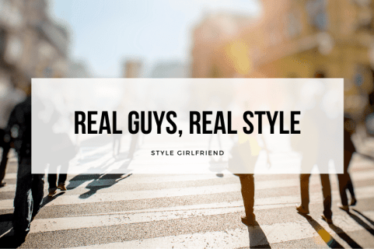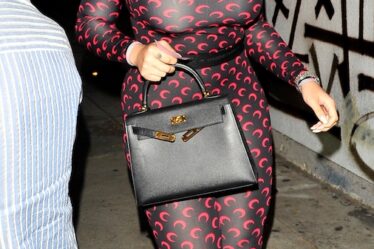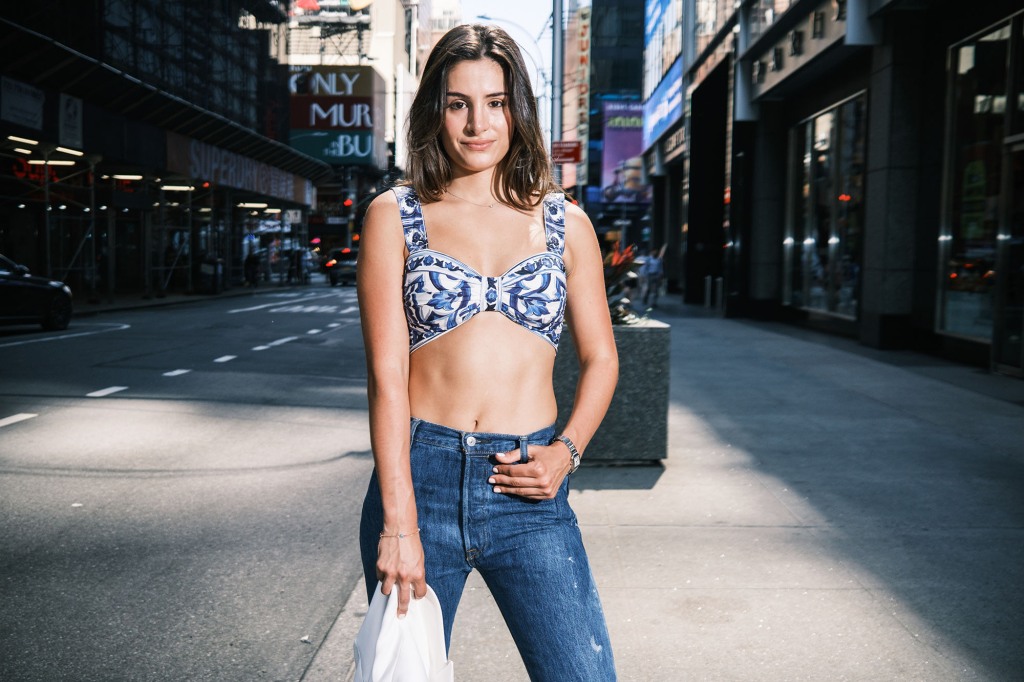
Given her athletic 5-foot-7-inch frame, Harvard hockey player Chloe Ashton has always held a casual interest in the modeling world. A meaningful introduction to the industry came through her now-ex-boyfriend, who was signed with Wilhelmina, and the agency had in turn asked him about Ashton.
But as a Division I NCAA athlete, she wasn’t able to work with brands at the time.
“He basically told them, ‘If NIL [Name, Image and Likeness] ever passes, she would be interested,’” Ashton, 22, told The Post, referring to a newly implemented regulation that permits college athletes to profit off their personal brand.
“When the rules changed, it was obviously at the front of my mind,” she continued.
And so at the end of Ashton’s season — during which her team won the Ivy League title and finished in the nation’s top 10 — she officially signed with the modeling agency’s sports and fitness division.
“I think companies now want to see authentic body types,” said Ashton, who hopes to land gigs with active brands such as Nike or Lululemon as well as break into the high-fashion space.
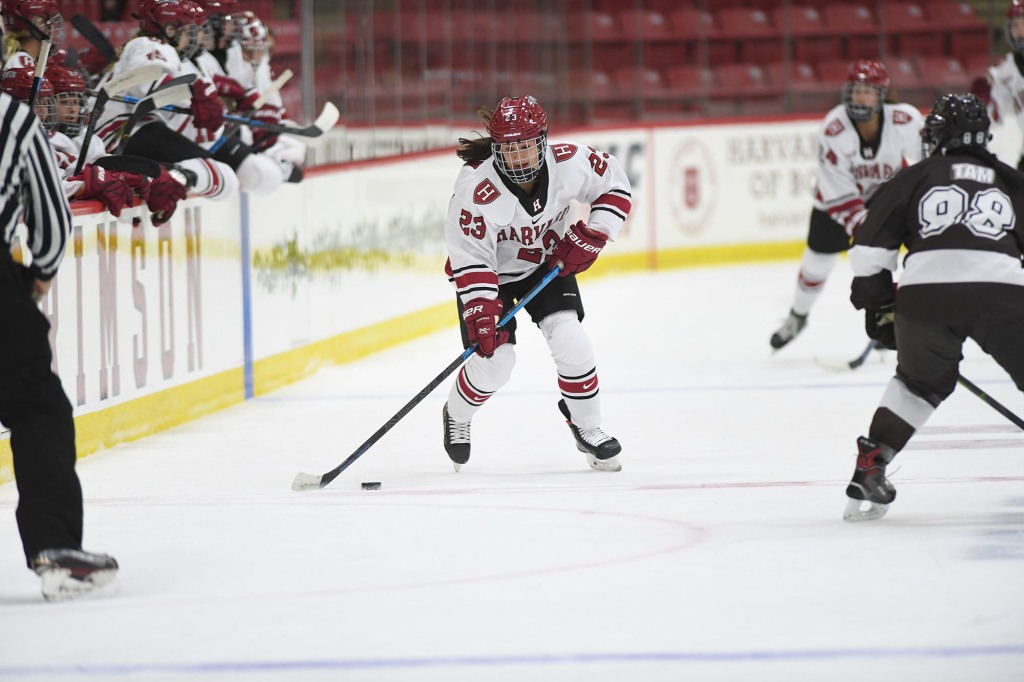
“I am working out six days a week, anyway. It’s the nature of being a college athlete on any leveI. I am not changing my body to have a certain aesthetic,” she added.
After the Name, Image and Likeness rule changed last July, the floodgates opened for both brands and talent, making a handful of athletes such as University of Miami women’s basketball players the Cavinder twins millionaires within months.
There have been noteworthy deals with nutritional supplements, protein bars, financial companies, apps and gyms — not to mention the many collaborations with local restaurants, dentists and car dealerships. So far, the fashion world hasn’t fully embraced the newly available collegiate talent pool for endorsements or ads — though that is beginning to change.
“At the outset, fashion brands weren’t familiar with NIL but they are starting to come around and see the power and influence of these athletes,” Keith Estabrook of Estabrook Group told The Post. He’s worked with athletes including LeBron James and Andre Iguodala and was an early force in fusing the worlds of sports and high fashion. The New York-based branding expert is working with a few college clients, many of whom are clamoring to broker deals within the style world.
One of them is Khristian Lander, a point guard who transferred from Indiana to Western Kentucky — though it was his dyed blonde hair that caught Estabrook’s eye.
“I was really excited when the rule changed and, personally, I wanted to do something with fashion,” Lander, 19, told The Post. “I take a lot of pride in my personal image.”
From a style standpoint, he looks up to Odell Beckham Jr. and follows the now-infamous NBA and NFL tunnel walks, which have become de facto catwalks that see pro-ballers transform into fashion billboards.
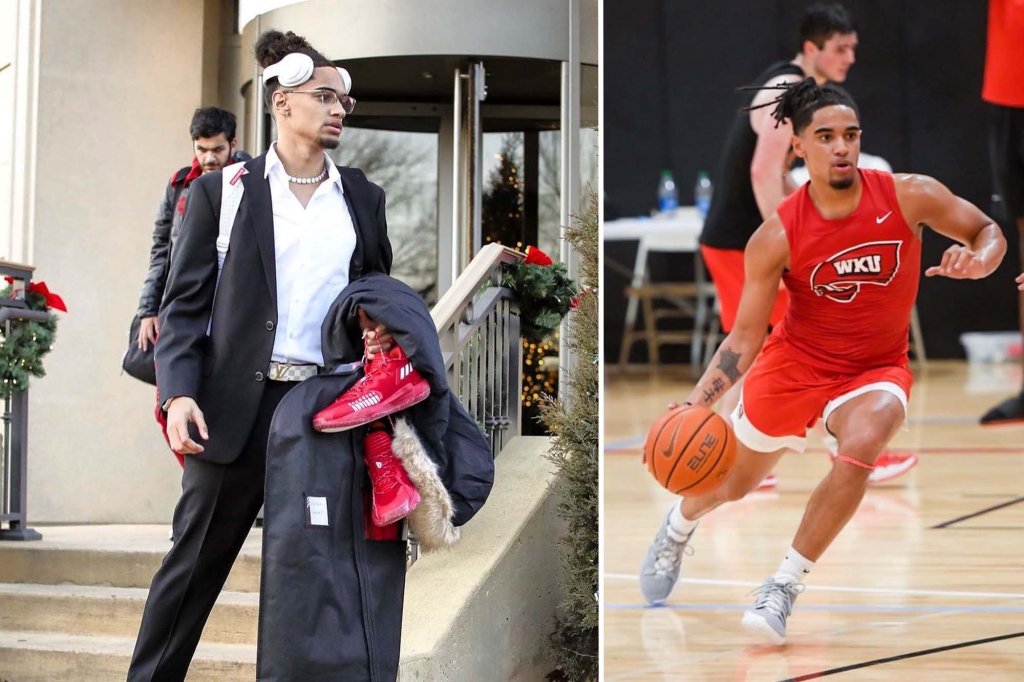
Last season, Lander started to emulate the tunnel walk. His signature look is wearing his sneakers slung around his shoulder like the main characters in his favorite movie, “White Men Can’t Jump.” He connected with a photographer who would snap him strutting to home games — something he plans to continue at Western Kentucky.
“A couple of [my teammates] have talked about how we are going to put our best outfits together for the tunnel walks. Everyone is excited about it,” said Lander, who has done smaller partnerships with a jewelry company, food brands and the homeless advocacy organization Help USA. He said he is close to finishing a few deals in the lifestyle and clothing world.
One of the earliest fashion brands to jump on the NIL train was American Eagle, whose biggest audience is Gen Z. Last July, the company launched #AEAthletic Dept, courting social collaborations with the likes of Pittsburgh quarterback Kedon Slovis, Ohio State cornerback Sevyn Banks and Auburn running back Tank Bigsby.
“We’ve kind of been two or three steps ahead of the competition to go after this,” Craig Brommers, the CMO of American Eagle, told The Post.
While they snapped up football players, they found roaring success with an athlete in a niche sport: LSU gymnast Olivia Dunne. The slim blonde, boasting 1.9 million followers on Instagram and 5.6 million on TikTok, has become one of the top earners in the NIL era, surpassing the million-dollar mark last year.
“We’re still learning as we go, but a few of these kids have really cut through in a big way and it moves the needle on social engagements,” said Brommers, who declined to elaborate on the financial details of their partnerships.
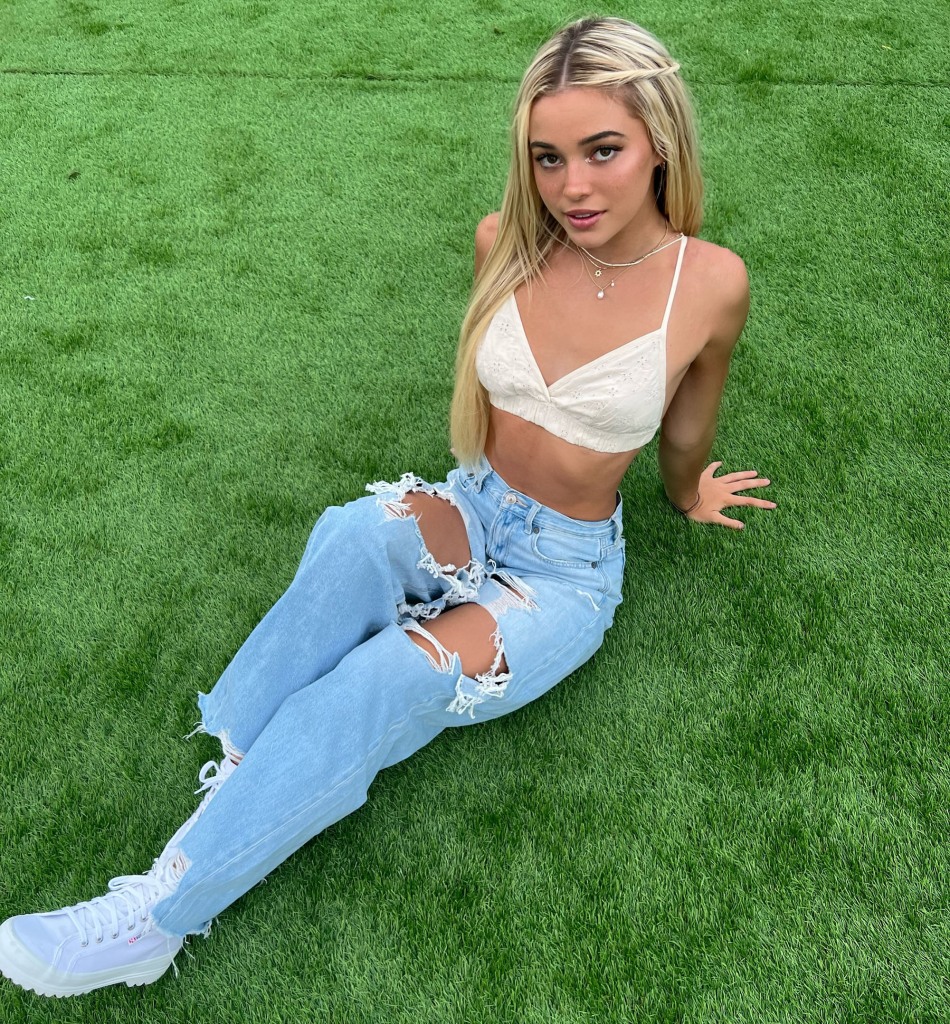
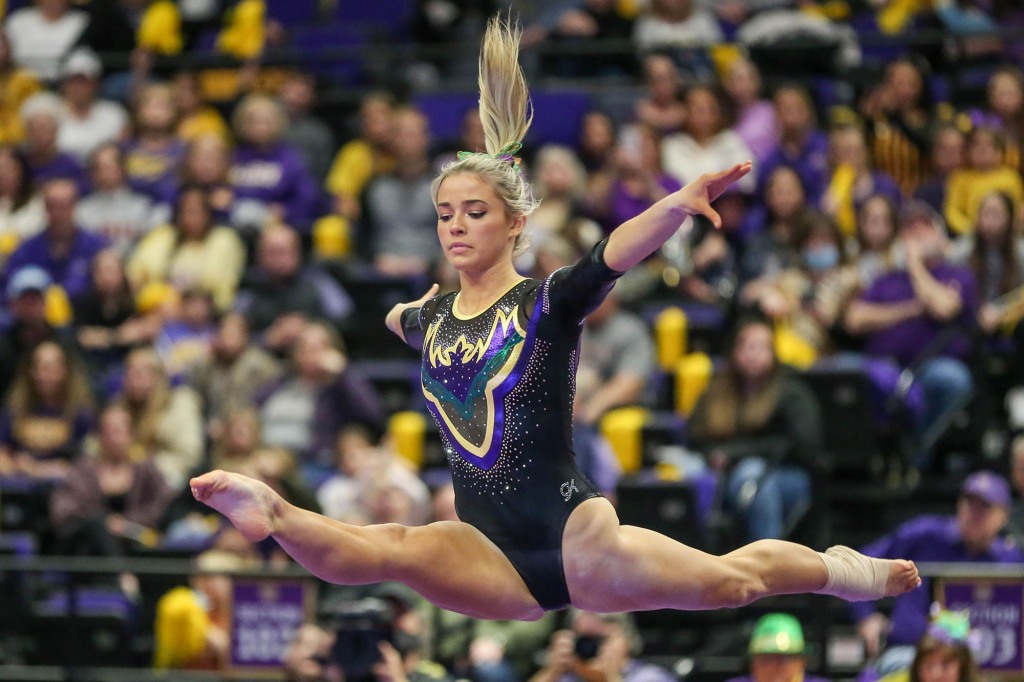
“There’s Olivia Dunne and she was the number-one post of the first quarter, period. She is an outstanding gymnast from an SEC school, but she has an authentic, optimistic persona on social media. And she looks great in a pair of American Eagle jeans. That to me is the magic we’ve been looking for as we explore this brave new world of NIL,” he added.
Last month, Dunne posted an Instagram ad for Forever21 and, in September, she signed a deal with activewear company Vuori, which Forbes reported was worth “mid-six figures.”
“Fashion has always been a huge passion of mine,” Dunne told the publication. “Before college, my coach and I would design my own custom leotards for all my major competitions. I love expressing myself through my style.”
Meanwhile, Ashton hopes her foray into modeling brings more prominence to the world of women’s hockey, which isn’t heavily represented in the lifestyle space.
“That’s the beauty of this NIL deal coming through. That this is really a showcase, showing many different versions of strong, athletic, confident women and men.”
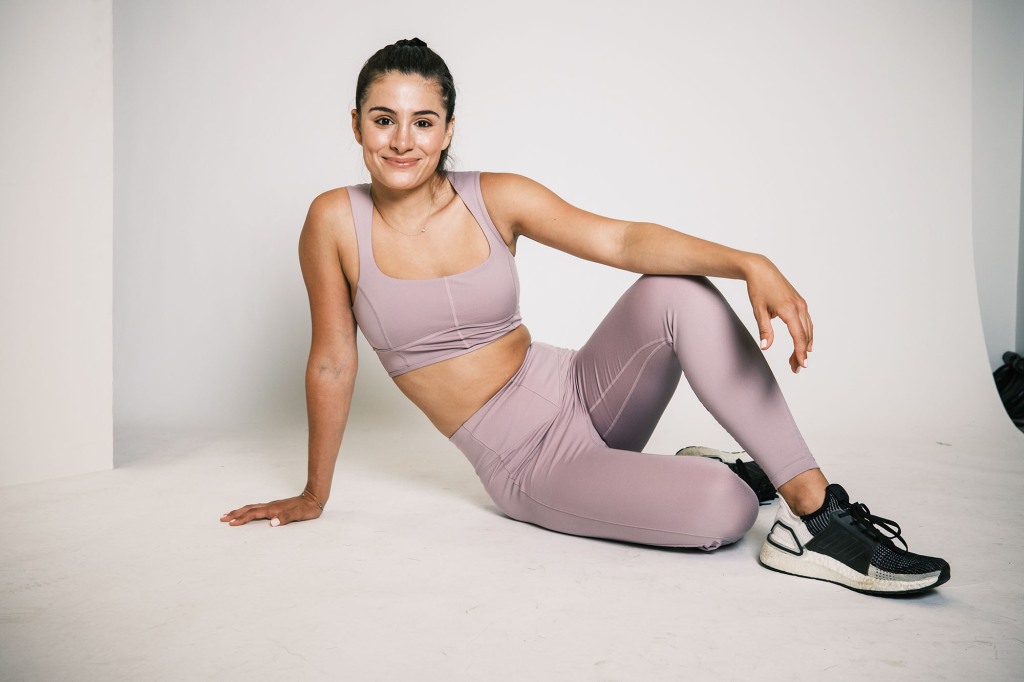
As American Eagle can attest, their athletes have been good ambassadors where the Gen Z consumer is concerned, but Estabrook said NIL deals pay dividends beyond the brand’s targeted audience.
“You have the post-college demographic that will always be loyal and pay attention to their school’s athletes. That’s the sweet spot for brands,” said Estabrook. “[Using athletes] is cost-efficient, builds loyalty and it’s authentic,” he said, adding that higher-end brands such as Tory Sport, Tommy Hilfiger, Ralph Lauren, Kate Spade and Coach would be smart to do deals with athletes.
Such partnerships can also create massive amounts of buzz, according to Brendan Kaminsky, founder of Bknown, a branding and social media company that has worked on NIL deals with Giants first-round draft pick Kayvon Thibodeaux.
“It gets them all this earned media,” said Kaminsky, referring to headlines that tout “the first fashion brand to do this or that.”
And the upside for the brand could be huge as time goes on.
“There is always going to be one Steph Curry from Davidson [College],” said Estabrook. “When he was there, he wasn’t on a lot of people’s radar. Look where he is now.”

